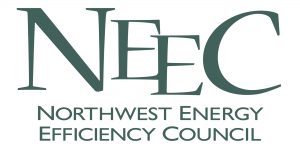Portland, Oregon established its Green Investment Fund (GIF) in 2005 to provide financial incentives for the adoption of innovative technologies in energy efficiency, renewable energy, water conservation, stormwater management, and green building materials. The GIF was intended to demonstrate green building in an array of project types; to highlight the most innovative, regionally appropriate practices and technologies; and to support publicly valuable green building projects.
The Challenge
With a vision and enthusiastic stakeholders in place, the City of Portland needed a reliable, industry-leading technical team to measure and verify the technologies’ performance and effectiveness. The clients engaged the experts at Cadmus and Geosyntec, who worked together to verify installation and performance of technologies at 21 project sites throughout Portland.
Over the course of 2005-2013, Cadmus and its partners assessed the performance of emerging green technologies in diverse buildings such as:
- A floating home
- A wine warehouse
- A gas station converted to a community center using shipping containers
- More-conventional homes, commercial buildings, schools, and other facilities
Measuring Innovation Impact
At the project sites, the Cadmus team evaluated a diverse array of elements designed to reduce natural resource consumption, including structural insulated panels, day-lighting systems with integrated building controls, infiltration bio-swales, photovoltaic (PV) arrays, PV-integrated glass, wind turbines, passive heating and cooling systems, dual- and low-flush toilets, rainwater harvesting systems, ecoroofs, rain gardens, stormwater planters, and energy-efficient appliances.
For each of these sites, members of the Cadmus project team completed extensive measurement and verification (M&V) activities to determine the facilities’ energy consumption and compare the results to a baseline estimate. Energy-efficiency M&V activities conducted included:
- Detailed measurement of actual energy consumption and cost data
- On-site blower door testing and infrared monitoring to find air leaks
The project team also calculated impacts of proposed GIF measures that were intended to reduce water consumption and rainwater runoff, as well as approaches and materials to reduce construction waste.
Findings and Results
By working closely with the City and the project proponents, the Cadmus team provided feedback that led to identification of many problems that were then remedied. Using data gathered at the 21 project sites as well as generated baselines, the Cadmus team’s reports determined whether the resource-savingmeasures analyzed in the program buildings were operating as expected when compared to the baseline. Among the more exciting insights, the team found:
- Through use of passive solar water heating, envelope efficiency improvements, and efficient equipment and appliances, an innovative floating home used 64 percent less energy than a comparable baseline home.
- Air infiltration in a home with a tight envelope and spray-in urethane insulation was less than half the level allowed by code.
- One commercial building project used a unique open-loop ground source heat pump that provides heat— in addition to all the building’s water—from an underground river.
- A new medical office building with a rainwater capture system to serve irrigation and sewage conveyance needs was using far more water than predicted. In consultation with the building manager, we determined that medical procedures in the building had not been included in the original consumption estimates.
 As a program to demonstrate innovative technologies, the Portland GIF projects provided very valuable feedback—both positive and negative—about specific technologies and design approaches that will help inform the next generation of green buildings in Portland and beyond. The GIF enabled the City of Portland to gather project information and develop case studies to aid its promotional and education efforts in the field of green building, and facilitated valuable partnerships with the local development community to help inform green building-related policy and program efforts for the city.
As a program to demonstrate innovative technologies, the Portland GIF projects provided very valuable feedback—both positive and negative—about specific technologies and design approaches that will help inform the next generation of green buildings in Portland and beyond. The GIF enabled the City of Portland to gather project information and develop case studies to aid its promotional and education efforts in the field of green building, and facilitated valuable partnerships with the local development community to help inform green building-related policy and program efforts for the city.
To learn more about Cadmus’ comprehensive energy efficiency services, visit www.cadmusgroup.com/energy.
